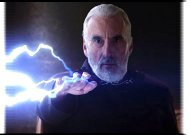the best thing to do if you want to completely erase your hard drive is write it all with zeros.
Boot from a Linux Install CD - probably any one, and you only need disk 1, and then issue this command:
linux rescue
at the first prompt you see.
issue this command:
more /proc/partitions
and then you will see a list of partitions, hda is the first hard drive, hda5 the fifth partition, etc.
To completely destroy the whole disk, type this command:
dd if=/dev/zero of=/dev/hda
to write zeros to primary master hard drive, or
dd if=/dev/zero of=/dev/hda2
to delete 2nd parititon on that drive, and to leave rest OK (....as I recall....

)
It will take a VERY long time.
Eventually, it will bomb out with an error message. It will say something like:
the specified target contains insufficient space.
or something like that, which is the operating systems best guess at what's really happened, which is that:
the specified hard drive cannot contain an infinite number of zeros.
